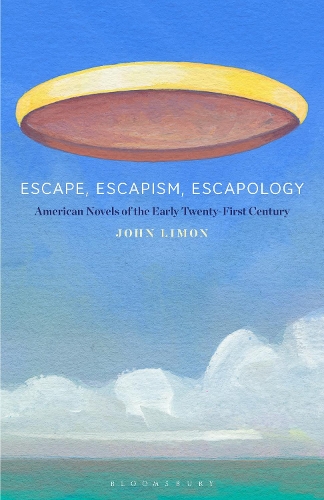
Escape, Escapism, Escapology: American Novels of the Early Twenty-First Century
(Hardback)
Available Formats
Publishing Details
Escape, Escapism, Escapology: American Novels of the Early Twenty-First Century
By (Author) Professor John Limon
Bloomsbury Publishing PLC
Bloomsbury Academic USA
6th October 2022
United States
Classifications
Professional and Scholarly
Non Fiction
Narrative theme: politics / economics
Comparative literature
Literary studies: fiction, novelists and prose writers
813.6
Physical Properties
Hardback
248
Width 140mm, Height 216mm
Description
Escape, Escapism, Escapology: American Novels of the Early Twenty-First Century identifies and explores what has emerged as perhaps the central theme of 21st-century American fiction: the desire to escapefrom the commodified present, from directionless history, from moral deathat a time of inescapable globalization. The driving question is how to find an alternative to the world within the world, at a time when utopian and messianic ideals have lost their power to compel belief. John Limon traces the American answer to that question in the writings of some of the most important authors of the last two decadesChabon, Diaz, Foer, Eggers, Donoghue, Groff, Ward, Saunders, and Whitehead, among othersand finds that it always involves the faux utopian freedom and pseudo-messianic salvation of childhood. When contemporary novelists feature actual historical escape, pervasively from slavery or Nazism, it appears in their novels as escape envy or escape nostalgiaas if globalization like slavery or Nazism could be escaped in a direction, from this place to another. Thus the closing of the world frontier inspires a mirror messianism and utopianism that in US novels can only be rendered as a performative, momentary, chiasmic relationship between precocious kids and their ludic guardians.
Reviews
If you havent yet encountered John Limons work, you have some exhilarating surprises ahead: its witty, keenly idiosyncratic, beautifully adroit at drawing unexpected connections, and spectacularly attuned to the evocative possibilities of both paradox and pathos. Escape, Escapism, Escapology: American Novels of the Early Twenty-First Century is a savvy examination of crucial obsessions in some of our most ambitious and canonical contemporary fictions, helping us through the problem of conceiving not only what were escaping from but also what were escaping to. The result is an argument that will compel both the ornithologists and the birds: one that our Michael Chabons will find as illuminating as our Stanley Cavells. * Jim Shepard, author of The Book of Aron *
Limon's bleakly funny and effortlessly learned study examines novels for which this, the world now before us, is as good as it gets. That equivocal and confounding prospect, it turns out, haunts contemporary fiction in previously unimaginable ways. This is literary criticism at its very best. * Michael Szalay, Professor of English, Film, and Media, University of California, Irvine, USA *
John Limons Escape, Escapism, Escapology will stand as a landmark study of the early twenty-first century Anglophone novel. Its elaboration of escapism offers a brilliantly original and suggestive framework for a widescale reconsideration of the force and interest of contemporary fiction. I can think of very few recent works of criticism that can match its interpretive verve and its contagious curiosity. It is thrilling to read such an intellectually forceful engagement with aesthetic culture of the present moment. * Deak Nabers, Associate Professor of English, Brown University, USA *
Author Bio
John Limon is John Hawley Roberts Professor of English at Williams College, USA. He is the author of The Place of Fiction in the Time of Science (1990), Writing After War (1994), Stand-Up Comedy in Theory (2000), and Deaths Following (2012).
